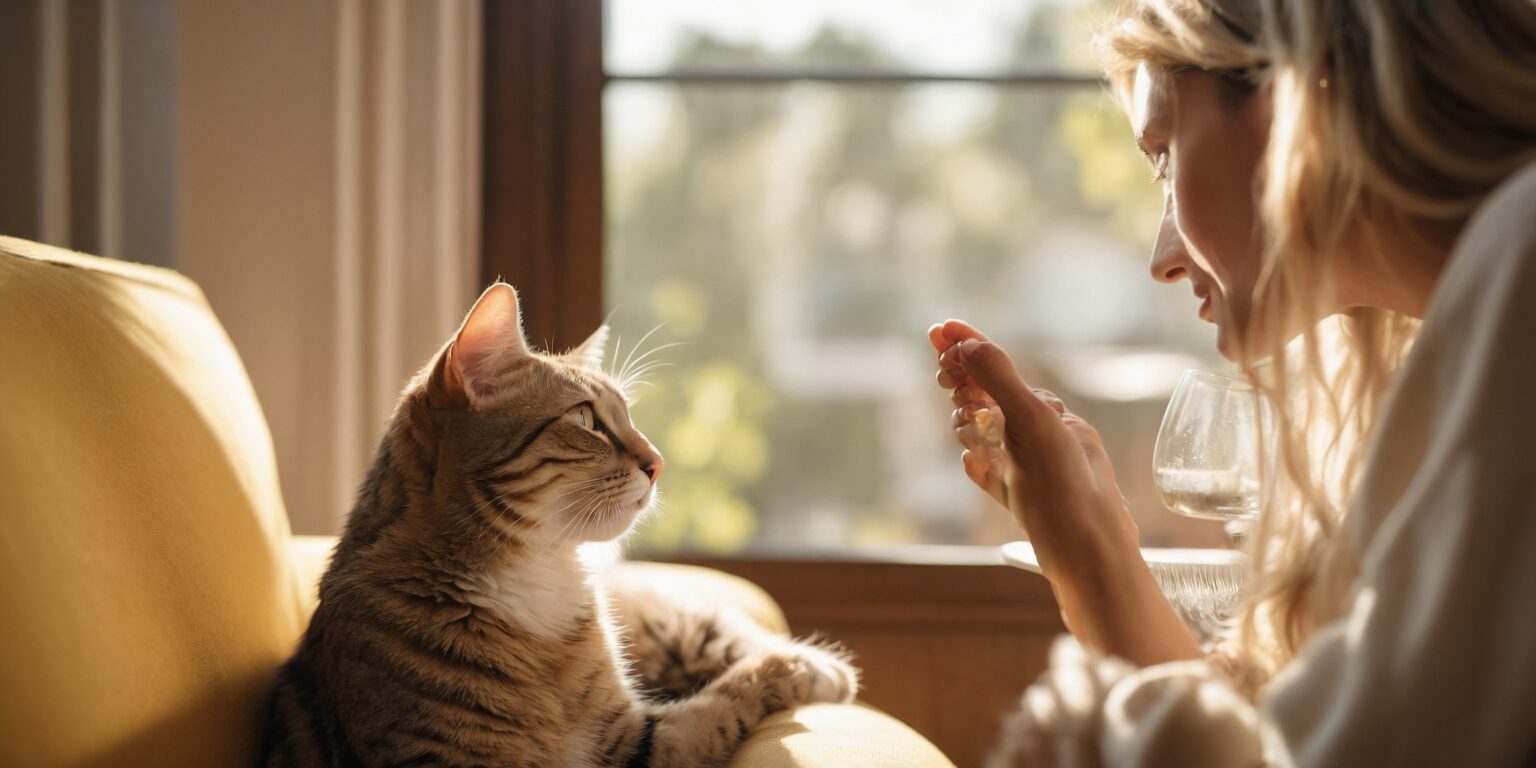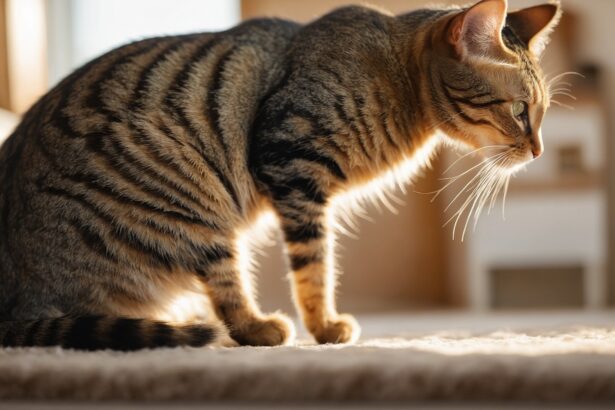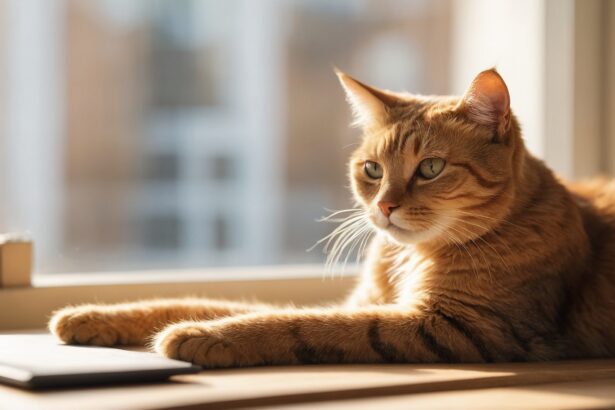Why cats lick us: decoding a tender ritual
Your cat’s sandpaper kisses can feel a little surprising, can’t they? Yet for most felines, licking is a gentle love language. It’s how kittens bond with their mother, and how adult cats fold us into their tiny, furry family.
- Why cats lick us: decoding a tender ritual
- Practical reasons your cat licks you
- When licking becomes excessive
- Bottom line
- FAQ: Why do cats lick us?
Think of it as social glue. A quiet moment. And often, your cat’s way of saying: you’re mine, and I feel safe with you.
Social grooming: the secret to feline bonding
In feline groups, allogrooming—mutual licking—keeps bonds strong and tensions low. When your cat grooms you, they’re sharing their group scent and reinforcing your connection.
You might notice your cat presses close, blinks slowly, or even purrs while grooming you. All green flags that say “we’re good.”
Fun fact
A cat’s tongue is covered in tiny keratin hooks (papillae). These act like a comb—perfect for grooming fur… and explaining that prickly feeling on your skin.
Pro tip
Make “grooming time” a calm mini-ritual. Offer your cat a soft brush or grooming glove before bed. Many cats happily trade licking you for being brushed together.
Licking as communication: what your cat is saying
Licking can also be a message. What kind?
- “Pay attention to me.” After a few licks, your cat might nudge your hand for pets.
- “Play with me.” Look for a playful tail swish and bright eyes.
- “I’m a bit anxious.” Licking may rise after routine changes or visitors.
Mistake to avoid
Don’t yank your hand away suddenly or scold. It can trigger chasing or cause stress. Instead, pause, breathe, and gently redirect to a toy or calm petting.
Practical reasons your cat licks you
Your skin tastes interesting
Salt from your natural perspiration is appealing to many cats. So are certain skin-care fragrances. If licking ramps up after a workout or lotion, you’ve found the clue.
Curious noses love scents—some cats even enjoy the scent of your sweat. Try fragrance-free products if licking gets a little… intense.
Attention on demand
Clever felines learn quickly: lick, and the human reacts. If every lick earns eye contact, chatter, or treats, your cat will repeat it.
Offer structured alternatives. Short play bursts, puzzle feeders, or a cuddle cue work well. If your cat often follows you everywhere, attention-seeking may be the theme.
“You’re part of my pride” grooming
Some cats “clean” their humans exactly like they would a feline friend. It’s adorable, a little bossy, and very affectionate.
- Let gentle, brief licks happen if you’re comfortable.
- If it gets too much, place your hand beside you and offer a soft brush.
- Reinforce the calm moment with your warm voice.
When licking becomes excessive
How to spot compulsive licking
There’s a difference between cute kisses and compulsion. Watch for:
- Frantic, repeated licking that’s hard to interrupt
- Hair thinning or skin irritation on you or on the cat’s own body
- Licking spikes after stressors (moves, new pets, loud noises)
- Restless pacing or vocalizing along with licking
If any of these show up, speak with your vet. International Cat Care explains overgrooming and how to help safely.
Gentle ways to dial it back
- Redirect with play: a wand toy, then a calm treat.
- Offer a “lickable” alternative: a lick mat with a thin smear of meat purée.
- Enrich the day: window perches, scent trails, rotating toys.
- Keep hands neutral. Reward calm sits, not persistent licking.
Original trick
Freeze a silicone lick mat brushed with diluted tuna water. When licking starts, present the chilled mat. It soothes, satisfies, and spares your skin.
Routine brings reassurance
Predictable rhythms help sensitive souls. Aim for a simple loop: play, food, rest, affection, repeat.
Pair quiet grooming moments with soft words and slow blinking. Consistency is comfort for cats—and for us.
Heads-up
Ignoring excessive licking completely can backfire. It may escalate if stress is the root. Start with enrichment, then seek your vet’s advice if needed. For telltale signals, review the signs of stress in cats.
Bottom line
Understanding why cats lick us turns a prickly surprise into a sweet conversation. It’s love, comfort, and sometimes a tiny SOS. Meet the need, set gentle boundaries, and keep your bond soft and secure.
FAQ: Why do cats lick us?
Is cat licking always affectionate?
Mostly, yes. It often signals bonding, comfort, or attention-seeking. Context matters—relaxed body language is your green light.
Can cat saliva irritate skin?
Some people with sensitive skin may notice redness. Rinse gently if needed and avoid fragranced lotions that encourage licking.
How do I stop nighttime licking?
Offer a brief play session before bed, then a small snack and brushing. Redirect to a lick mat if licking starts during the night.
When should I see a vet?
If licking is frantic, causes hair loss or skin irritation, or follows a stressful event, consult your veterinarian for tailored guidance.







